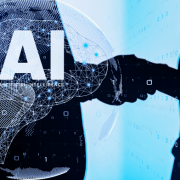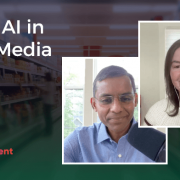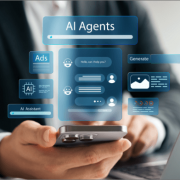In traditional software development, enterprise teams tackle security of applications and mitigation of risks towards the end of the application development lifecycle. Due to this, security and compliance issues almost always lead to delayed product releases or worse, release of applications with some security weak points. Adopting cloud and data platforms further add new security complexities and the need for thorough infrastructure assessment. DevOps has changed the way we look at software development and has made us rethink security. It helps teams with faster application development and deployment while new features of cloud and data platforms now form the basis of DevOps. Reducing vulnerability and securing all cloud applications should be part of your DevOps best practices and strategy.
Security Essentials for Integrating DevOps with Cloud
Below are a few top strategies to help you integrate DevOps practices and computing features to improve security of D&A applications on cloud.
- Secure DevOps Development Practices
DevOps principles with well-defined security criteria and design specifications help enterprises define a secure architectural framework for current and future applications or services. Multi-factor authentication (MFA), securing data in transit, and continuous threat monitoring are essential. Teams who implement threat modeling within DevOps are well equipped with insight into behaviors, actions, and situations that can cause security breaches. This helps to analyze potential threats in advance and plan for mitigation by creating a secure architecture. For security testing, teams can include vulnerabilities assessment and penetration testing (VAPT) as systems are created, as well as when they go live.
With respect to DevOps, Infocepts’ best practices include the most up-to-date security features, security testing, and continuous threat and vulnerability monitoring. Exercising these practices, we’ve helped global clients transform their data infrastructure and security.
- Choose a Secure Cloud Infrastructure
Secure deployment is crucial for enterprise data systems, pipelines, and performance indicators. Consulting with a data analytics and cloud specialist is important to help you select the right infrastructure. Your cloud platform and its architecture should include built-in security vulnerabilities and patch management to streamline team workflows. Post platform selection, the cloud infrastructure should be regularly analyzed to detect security threats and readiness criteria. Your DevOps strategy should include assessment of all cloud services and related security sections. Active security monitoring must assess programs or software before they are implemented.
The Infocepts cloud migration solution has helped multiple clients implement cloud-native security and compliance for their technology stacks. We have helped them get full visibility into cloud misconfigurations, discover cloud resources and sensitive data, and to identify cloud threats.
- Go Serverless
Large, serverless applications amount to a collection of smaller functions located in stores. As they are smaller and cloud based, risk from long-term security threats or attacks is reduced — as are network threats in yesterdays’ data centers, virtual servers, databases, and overall network configuration. Serverless computing development lets DevOps concentrate on code creation and deployment rather than taking care of security vulnerabilities within applications.
Infocepts’ cloud migration solution has helped a US media company go serverless, thereby resulting in improved application security. Serverless cloud technology has provided our client with reduced operational, and infrastructure overhead costs coupled with overall improved performance.
There are other important factors and best practices which should be considered by DevOps teams for improving security of their applications and infrastructure. Secure application development delivers improved automation across the product delivery chain, prevents errors, minimizes risk and downtime, and enhances further security integration in the cloud environment. Cloud migration is essential to incorporating security protocols into day-to-day operations; thus companies become increasingly more secure by design. Infocepts’ solutions—embracing modern DevOps practices—can help you implement a robust cloud infrastructure.
Interested to Know More? Check our Advisory Note
Our advisory note helps DevOps and cloud professionals understand important things to consider while integrating DevOps practices with cloud features in order to improve overall security, cloud operations, process automation, auto-provisioning of cloud services and more.
Get your copy of key strategies for enterprises to ensure secure DevOps in the cloud.
Recent Blogs

Bots to Brains: How Agentic AI is Changing the Game
July 8, 2025

The Future of Supply Chains Is AI-Driven—Is Your Business Ready to Embrace the Change?
July 2, 2025

What Retail Media Can Learn from Instacart’s AI Strategy
June 24, 2025

Beyond Chatbots: How Agentic AI Is Automating High-Stakes Business Decisions
June 11, 2025


